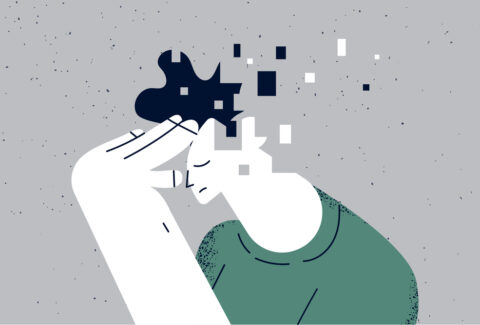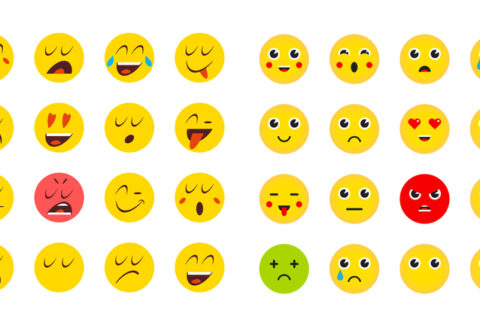I Want Something Different

I Want Something Different
“I want something different. I am tired of this. I am tired of knowing so much while continuing to get these types of results in my life. This “unconscious,” this “priming,” these “blocks,” this “unconscious-conscious alignment,” whatever it is, I want to do something, and I think I’m ready for it.”
This is a series of articles where Marlene has been meeting with her therapist, Rajvee. Marlene knows a lot, as she is a therapist and has been in and out of therapy for a long time. She’s well-read and has participated in many courses, but no matter what she does, her results continue to be inadequate. Rajvee, her therapist, has started to help her understand the reason for all that. Rajvee calls it, “blocks,” which Marlene needs to remove if she is to attain the kinds of results she has been working for. “This is when you’ll be able to see an alignment between what you know and the results you have in your life,” said Rajvee.
As humans, we have a number of aspects of our lives that are very important to us. While we do not assign the same value to each of these aspects of life, there is a number of aspects of our lives, to which we, universally, ascribe very high value [1]. These aspects of life are referred to as the 7 Area Life Model, and they include:
- Our health
- Our relationship with others, particularly, with our loved ones
- Our job or career
- Our finances
- Our relationship with ourselves
- Our ability and willingness to contribute to others
- Our ability to express ourselves, our strengths, and our passion, in the freest and highest way possible.
Regardless of our values, norms, philosophy, ethnicity, religion, nationality, race, or culture, these 7 areas of life are very high on our list. This also means that these 7 areas of life can be used to speak to our level of satisfaction, and fulfillment; or can be used to measure the level of expression of our happiness, joy, or success.
Now, if you were to look at each one of these 7 areas of life:
- How would you rate each one of them?
- How satisfied are you with your rating?
- Which areas are not rated as high as you would desire them to be?
- What’s the explanation behind these inadequate ratings?
- What can you do to increase these ratings?
If we are like most people, we’ll likely answer question # 5 as “I need more information.” This is a normal response. It’s logical, rational, and we’ve been trained that way. “More information is key.” Information is power.” “We need to learn how things work.”
Yet, what these three phrases have in common is that they are incomplete.
- “More information is key.” More information is key only when it is adequate information. It is adequate information only when it works. And it works only when it addresses things at their root. Unfortunately, the type of information we are given serves to simply look at things at their superficial level. We’ve been trained to simply look at the tip of the iceberg[2], ignoring, unknowingly, what’s under the water.
- “Information is power.” Information is power only when used or implemented. To use or implement information requires an adequate understanding of that information. An adequate understanding of information requires more than just an intellectual understanding. Rather, an experiential understanding is key. And it is then, when, we can truly equate information to power.[3]
- “We need to learn how things work.” Nothing is closest to the truth. We do need to learn how things work. However, how do things work? How do things really work? And what things, exactly?
To answer these questions, it is worth highlighting the fact that one of the challenges we face is the lack of discernment. The word discernment[4] can be defined as:
- The ability to judge well
- The quality of being able to grasp and comprehend what is obscure
- The ability to recognize small details, accurately tell the difference between similar things and make intelligent judgments by using such observations
- The act or process of exhibiting keen insight and good judgment
Further, looking at the etymology[5] of the word, it derives from the Latin term, “discemere,” which means, “to separate” or “to divide.” What is it that we are to separate?
We are to separate the “Constant” from the “Variable.”
How things work can be viewed through the lens of the Constant or the Variable. How things work is often learned through the lens of the Variable, which explains why it remains at an intellectual level instead of deepening at an experiential level.
We do need to learn how things work. But we need to be able to discern the truth from what is false. And we will know what the truth is based on what is Constant. Truth has no exception; it does not change; it remains the same, no matter what, no matter when, no matter where, and no matter with whom. This, in fact, has been Rajvee’s response when Marlene told her clearly how tired she was of getting the same results despite all the information she had.
“Marlene, our first step is to learn the Constant. The Constant is your unconscious mind. It does nothing yet leaves nothing undone. In other words, it is passive, in the sense that it simply receives and it responds accordingly, with no variation, no default, and no exception. And this is the Constant,” explained, Rajvee.
What Rajvee meant by that is that to learn how things work is to fully understand the following:
- Our unconscious mind is consistently being bombarded with a series of messages
- Our unconscious mind receives these messages as if they were a type of command
- Our unconscious mind can deliver only the same type of message received and nothing more or less
- Our conscious mind is the guard to the unconscious mind
- Our conscious mind is to be vigilant as to what it allows into the unconscious mind
- The first step to showing its vigilance is by being alert, observing, and noticing
And these are the 6 steps Rajvee will be taking along with Marlene, who’s been tired of her current results, and who seems to be ready to turn things around in her life – in each of the 7 areas of her life.
Clinician: Would you like to learn how to do that for yourself and how to help your loved ones and your clients do the same?
If so, please join us for our 6-month Certificate Course – The New Psychotherapy Course (NPC). Click here now to enroll.
[1] Stoewen, Debbie L. “Dimensions of wellness: Change your habits, change your life.” The Canadian veterinary journal = La revue veterinaire canadienne vol. 58,8 (2017): 861-862.
[2] Merriam-Webster. (n.d.). The tip of the iceberg definition & meaning. Merriam-Webster. Retrieved April 24, 2022, from https://www.merriam-webster.com/dictionary/the%20tip%20of%20the%20iceberg
[3] Benjamins, V. R. (2012, October 15). Information is not knowledge, knowledge is not wisdom, wisdom is not truth. International Journal of Human-Computer Studies. Retrieved April 24, 2022, from https://www.sciencedirect.com/science/article/abs/pii/S1071581912001577
[4] “Discernment Definition & Meaning.” Dictionary.com, Dictionary.com, https://www.dictionary.com/browse/discernment.
[5] “Discernment (n.).” Etymology, https://www.etymonline.com/word/discernment.






